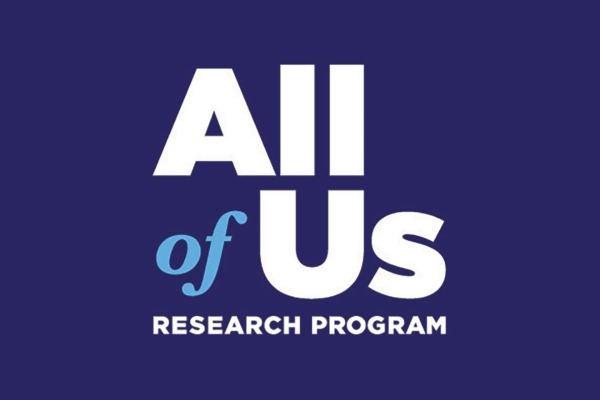
Medical research can sometimes become disconnected from the interests and needs of the people it is intended to serve. This is true across diseases and disorders, and addiction research is no exception. Too often, scientists who study drugs and addiction have not meaningfully engaged people with lived and living experience of substance use. And when people who use substances are engaged, the experience may leave them feeling exploited or traumatized, such as when they are not adequately compensated for their time or when they are asked to recall distressing life events. It is also rare for researchers to follow up with participants to let them know what was learned in a research project.
Such experiences contribute to a feeling that research is a one-way transaction benefiting scientists but giving little back to the community. Lack of meaningful community engagement also compromises the quality of the science by not incorporating the valuable ideas and insights of people who use drugs.
NIDA is committed to improving community engagement in all parts of the research process. For that reason, we have asked the National Advisory Council on Drug Abuse (NACDA)—the body of experts that advises on NIDA’s scientific research priorities—to convene a working group to recommend ways to enhance the meaningful engagement of people who have experience with drug use in the research our Institute funds. The workgroup will inform the creation of resources that outline NIDA’s expectations regarding community engagement and help both applicants and community partners navigate this critical work.
NIDA has long encouraged community-engaged research, and it is required element in various NIDA research funding opportunities, including those supported through our Racial Equity Initiative. The evolving opioid overdose crisis has underscored the importance of ensuring that people’s lived experience of substance use is centered in the science we support. For example, one of the pillars of the NIH Helping to End Addiction Long-term (HEAL) Initiative is that research must be relevant and responsive to the individuals, families, and communities it aims to help. One way HEAL studies are doing this is by drawing on the input of community advisory boards to ensure that the research is best tailored to the needs of the people most impacted by it.
The NIDA-funded Harm Reduction Research Network is a nationwide set of projects to enhance the impact of harm-reduction efforts, and its community advisory boards have already helped shape some of the studies. One project involves the development of a survey instrument to capture experiences of people who use drugs, and advisory board members helped tailor the wording of the instrument so that it reflected language more likely to be used by people who use drugs. Another study aimed at reducing overdose and increasing engagement in harm reduction and treatment services had originally been limited to people who use methamphetamine. Based on the input of advisors with more up-to-date knowledge of drug-use in their community, the study was broadened to include people who use cocaine, as that was identified as an emerging stimulant in their area.
The Integrative Management of Chronic Pain and OUD for Whole Recovery (IMPOWR) project is addressing the needs of people with substance use disorders and pain via a network of multidisciplinary team science collaborations. Its community advisory boards weigh in on funding decisions for pilot studies, and some of these studies have included a community partner as a co-investigator. Based on community input about the important role of PTSD and discrimination in healthcare settings in pain and opioid misuse and addiction, IMPOWR researchers added PTSD and stigma/discrimination items to their common data elements (the standardized questions that facilitate data-sharing across studies).
The Native Collective Research Effort to Enhance Wellness (NCREW) Initiative is partnering with Tribal organizations to support community-driven research projects that address opioid misuse and pain in Native communities. By providing needed training, technical assistance, and tools, the NCREW project is building capacity within Native communities to conduct locally prioritized research that incorporates indigenous knowledge and lived experience, with the aim of building effective, sustainable, and strengths-based interventions.
As outlined in NIDA’s Strategic Plan, NIDA is committed to partnering with people with lived and living experience in the development of new treatments for substance use disorder. Consistent with that goal, NIDA is funding four Patient Engagement Resource Centers (PERCs) to test various models of patient engagement that can inform research on SUD treatment services. Each PERC will recruit members of a particular patient population to understand what prevents them from finding or receiving evidence-based treatment services. This information will be used to pilot test patient-informed solutions to these challenges that can ultimately serve as models for the development of interventions in other settings.
There are many other ways that partnering with people with living experience of substance use could benefit both science and the community. Surveillance is one example. The drug market is rapidly changing, and people who actively use drugs and live this reality are best poised to provide information on the drug supply and its effects. And through their engagement in surveillance efforts, participants could gain information on new adulterants and contaminants that could help inform their own decisions.
In these, as with other research efforts, people who use drugs need to be treated with respect, and their confidentiality must be protected. They must also be compensated fairly for their time, their input, and their commuting and childcare costs.
Including people with experience of substance use and addiction in the scientific workforce—and making sure they feel safe and recognized as valuable members of the research team—must also become a priority for our science. As some of my colleagues at NIDA’s Intramural Research Program argued two years ago in the Journal of Addiction Medicine, people with lived and living experience of substance use disorders have unique perspectives that are invaluable in making sure that the right research questions are asked.
These are just some of the possible topics that may be discussed in the new NACDA workgroup. For that group, we are seeking individuals who identify as having experience with substance use or a substance use disorder or as a family or caregiver of someone who does. Participants will meet virtually three or four times during 2025 and potentially early 2026 and will be compensated for their time during the meetings. If you are interested in participating, further information is available on the Council Workgroups page. We are accepting application statements through January 10, 2025.
Dr. Nora Volkow, Director
Here I highlight important work being done at NIDA and other news related to the science of drug use and addiction.




